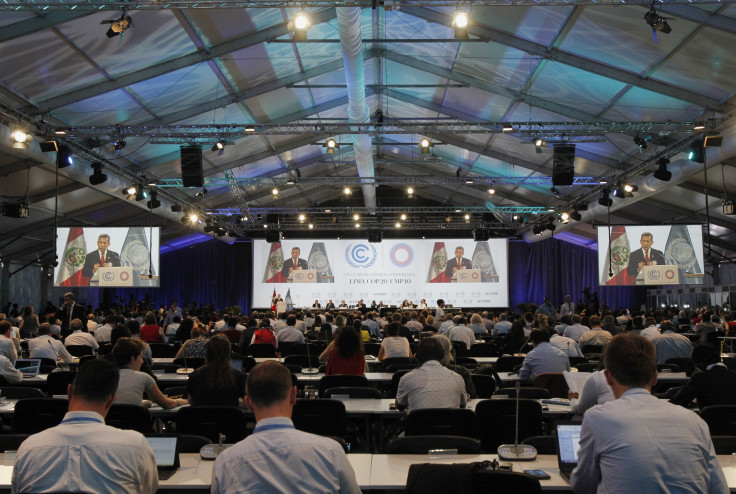Lima Climate Change Talks Stall With Little Agreement

Only one paragraph of text that the international negotiators working to draft a climate change agreement are willing to accept has been written so far at the United Nations climate change summit underway in Lima, Peru, the Guardian reported Thursday. Hopes were high that the 11,000 people who descended on Lima for the talks would come together to reach a consensus on how to limit the impacts of climate change. Yet with just one more day of the 10-day event remaining, that outcome looks increasingly unlikely.
“I am not really sure that we will see a clear outcome coming here in Lima,” former Mexican president Felipe Calderon said at the forum, according to the Guardian.
U.S. Secretary of State John Kerry visited Lima on Thursday to make a plea for progress among the negotiators present at the talks, which have seen progress on an agreement stall in recent days. Prior to its launch, the summit was cautiously viewed by many observers as a promising forum for creating the first global climate change treaty to require all nations, both poor and wealthy, to cut their emissions. But as of Thursday, only paragraph 34, which has countries increasing engagement through 2020, had been agreed upon by the parties to the talks.
“I know discussions can be tense and decisions can be difficult. But the fact is we simply don’t have time to sit around going back and forth about whose responsibility it is to act,” Kerry said, according to the Financial Times.
Kerry added that future generations will see the inability of governments to address climate change as “a massive collective moral failure of historic consequence … They will want to know how we together could possibly have been so blind, so ideological, so dysfunctional and frankly so stubborn that we failed to act on knowledge that was confirmed by so many scientists, in so many studies over such a long period of time.”
But Alden Meyer, a climate negotiations monitor for the Union of Concerned Scientists, said that rather than coming to a consensus, “We are going backwards,” the Guardian reported.
Divisions between China and other players about how to address global climate change have intensified as the week has progressed, stalling the talks, which began on a high note as China and the U.S. recently came to an agreement about how to reduce their emissions markedly over the coming years.
Tony de Brum, the Marshall Islands’ foreign minister, said China had been unexpectedly “stern” in opposing proposals that all countries publicly disclose details of their climate-change plans during the negotiations, according to the Financial Times.
“I thought they wouldn’t be as stern as they used to be,” he said. “I don’t know if it’s 48-hour posturing or not but I hope we can resolve it.”
The talks in Lima had already been widely criticized for having the largest carbon footprint of any U.N. climate summit in history, as organizers said they would produce more than 50,000 metric tons of carbon dioxide that would nonetheless be offset by Peru’s forest protection endeavors, according to NBC News.
© Copyright IBTimes 2025. All rights reserved.





















